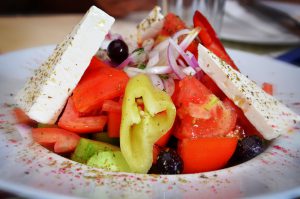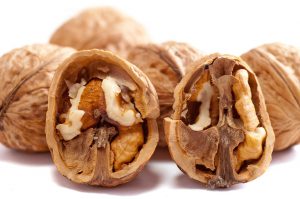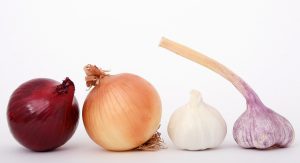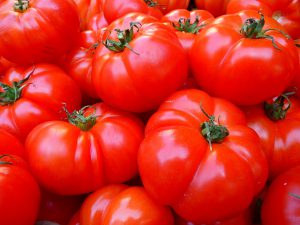‘Tis the season for a lot of things: family, food, gifting, and hopefully joy. But for many people, this time of year can be tough, and for some, seasonal blues or even depression can set in amidst all the festivities. If you’re struggling, your best bet is to talk to someone about it, but with that being said, there are things you can try to help keep yourself in a more balanced frame of mind.
Take, for example, the subject of food that we mentioned above. There are actually foods you can incorporate into your diet that might help fight depression (and unfortunately, they aren’t Christmas cookies!), so let’s take a look at them and get you feeling your best this holiday season and beyond.
Diet and Mental Health
So what does your diet have to do with your mental health? First of all, most mental health experts agree that a range of treatments are beneficial for depression, including self-care. In fact, according to Monique Tello, MD, MPH, “Self-care includes things like sleep, physical activity, and diet, and is just as important as meds and therapy — sometimes more so.”
But it goes beyond just anecdotal evidence that diet can help with depression. In fact, there is an entire field of medicine called nutritional psychiatry, and more and more studies are showing that there is a pretty big link between what you eat and your risk for depression.

For example, a randomized controlled trial published in the journal PLOS ONE found that symptoms of depression dropped significantly among a group of young adults after they followed a diet similar to what’s known as the Mediterranean diet for three weeks. Participants saw their depression “score” fall from the “moderate” range down to the “normal” range, and they reported lower levels of anxiety and stress too.
On the other hand, the depression scores among the control group of participants, who continued to eat a diet higher in refined carbohydrates, and processed and sugary foods and beverages, didn’t change at all. Their depression scores remained in the “moderate severity” range.
And you might be thinking that feeling depressed can lead to eating unhealthy foods, so how do we know what came first, the chicken or the egg? Well, there have also been studies checking this out, and they have concluded that the participants who started with a baseline healthy diet (like the Mediterranean diet) were less likely to develop depression in the first place.
Why does diet go so strongly hand-in-hand with our mental health? Researchers aren’t 100% sure, but they think that it could be related to how a poor diet can increase inflammation, which can be one risk factor for depression. Studies in animals have also suggested that the gut microbiome can affect brain functioning and, therefore, mental health. This might be because, for example, how our gut is functioning can alter levels of the neurotransmitter serotonin, which is largely synthesized by gut bacteria.
At any rate, it’s becoming clearer that the foods we eat are closely linked to our mental health. And while eating the “right” foods is certainly no silver bullet against mental health issues, we can try to practice self-care by eating foods such as the following.
12 Foods to Incorporate into Your Diet Now
So here they are! Twelve foods that could help you maintain a healthy balance in both body and mind:
1. Fatty fish
Recent studies have found that societies that don’t eat enough omega-3 fatty acids tend to have higher rates of depression. Other studies have found that people who don’t often eat fish, which can be a great source of these fatty acids, are more likely to develop depression. So if you’re into seafood, indulge your tastes and boost your mental health by incorporating fatty fish like mackerel, sardines, salmon, tuna, and, of course, some anchovies on that pizza! And if you’re not into fish, don’t worry, there are other sources of omega-3’s, which we’ll get to below.
2. Walnuts
If you’ve heard of the amino acid tryptophan, it was probably in relation to turkey, and you probably think it’s what makes you so sleepy after Thanksgiving dinner. But that’s a myth! Tryptophan actually helps our bodies produce serotonin, one of those feel-good chemicals that boosts mood. Since our bodies can’t synthesize tryptophan, we need to get it from our diet, and walnuts are an excellent source of it (but you can also eat that turkey or other poultry to get some more tryptophan into your diet). Bonus: walnuts are also an excellent source of omega-3 fatty acids!
3. Avocados
Walnuts not your thing? Avocados, which are full of body-beneficial good fats, are a great source of tryptophan. They’re also a great source of guacamole, which is a giant plus in our books!
4. Dark leafy greens
Popeye was so right about eating your greens, but not just because they keep your body healthy. Turns out they’re also great for your mind! Not only do they contain omega-3’s, but they are also rich in folates, and according to a Spanish study, rates of depression are higher in those who don’t get enough folates.
5. Dark chocolate
No, it’s not just your imagination that chocolate makes you feel good! Chocolate actually stimulates mood boosting chemicals similar to endorphins. One study found that eating chocolate reduces stress hormones, including cortisol, in those who are highly stressed. Just be sure to choose dark chocolate and watch for any hidden sugars – and enjoy it in moderation.
6. Lentils
This little legume is quite the depression-fighting powerhouse! Lentils are rich in selenium, and studies have shown a link between low selenium and poor mood. Not only that, but they are a great source of the folate (just one cup contains 90% of your daily needs!) we talked about above, which helps increase mood neurotransmitters that help you feel happy and healthy. As an added bonus, all of that folate helps your body lower a chemical called homocysteine. High levels of homocysteine are linked to damage to blood vessels and reduction of blood flow and nutrients to the brain. So a bowl of lentil soup (or other foods high in folate) can actually mean you’ll feel more alert and cognitively on point!
7. Onions
Here’s an idea: try creating a soup or salad from a dark, leafy green like spinach, lentils, and onions. Why the onions? They’re also a great source of folate and are super homocysteine fighters. Did we mention that homocysteine can also block the production of the feel-good hormones dopamine and serotonin? So forget about your breath and chow down! Bonus: onions can also help prevent certain cancers AND make your hair look healthier, so that makes us feel pretty good.
8. Mushrooms
These fungi can make you feel like a fun guy again – see what we did there? Mushrooms can help you combat depression and anxiety for more than one reason. First of all, they are rich in potassium, which can help with anxiety. And second, they also contain an antioxidant called ergothioneine, which helps reduce oxidative stress on all cells, including those in the brain. Less oxidative stress on the brain cells could help reduce feelings of anxiety and depression. So throw some mushrooms into that awesome soup we’re building, and serve it with some fish – hey, we’ve really got something going here!
9. Blueberries
Let’s talk dessert now – how about some fresh blueberries (or some blueberry pie, but go easy on the sugar!)? These blue beauties are rich in an antioxidant flavonoid called anthocyanin. This flavonoid, like many antioxidants, can make you less prone to depression. In fact, the results of a 2012 study suggested that consuming vitamins that provide antioxidants may reduce symptoms of anxiety in people with generalized anxiety disorder. The antioxidants found in blueberries can also reduce inflammation throughout the body (and remember, inflammation might be one risk factor in developing depressive symptoms).
10. Beans
Beans, beans, good for your heart…OK, we won’t finish that! But these little guys aren’t just good for your body! Beans are full of tryptophan, the amino acid needed for serotonin synthesis. They are also rich in magnesium, which can help to boost your mood and overall mental health.
11. Seeds
Time to get seedy! Seeds like chia and flax seeds are tiny but mighty, since they contain omega-3 fatty acids, antioxidants, and fiber. We already know that the first two are excellent depression fighters, but fiber is important, too. Having plenty of fiber in your diet reduces inflammation in the gut, making it easier for your body to absorb more nutrients the body uses to make neurotransmitters, such as serotonin.
12. Tomatoes
We knew there was a reason that our mom’s pasta sauce made us feel so good! Tomatoes are also rich in antioxidants, specifically a carotenoid called lycopene, which can help combat stress damage to brain neurons.
As we said, there is no silver bullet in the fight against depression and depressive symptoms. Often a combination of treatments and types of self-care can help, though, and one of the most important types of self-care is eating right! So if you’re getting in your zzz’s, moving your body, and eating a diet rich in the foods we’ve mentioned, you could find yourself with a boosted mood as the new year gets started. You could also find yourself with an awesome recipe for a legume-y, green-y, mushroom-y, onion-y something – and we want to hear about it! And about whatever dark chocolate blueberry concoction you come up with…. Happy eating!
Co-written by Joanna Bowling


